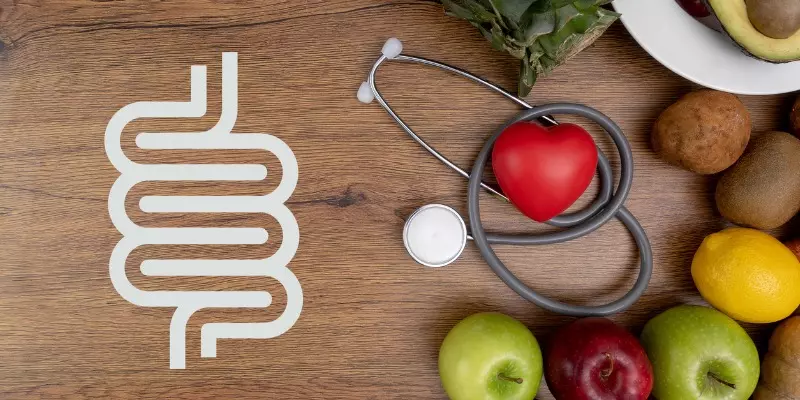
About 75% of the body’s neurotransmitters are produced in the gastrointestinal tract, and they are in direct communication with the brain. Because of this, the health of your gut—and the trillions of bacteria that live there—is tightly linked to your brain function and your mental health. New research suggests gut bacteria is so powerful it could be used to treat clinical depression.
Good Bugs vs. Bad Bugs
Some gut bacteria are beneficial to your health and well-being while others are harmful. And in a classic good guy vs. bad guy scenario, they are all trying to wrestle for control of your microbiome. When the ratio of good bugs to bad bugs is about 85 percent good guys to 15 percent troublemakers, it creates a healthy gut. When the ratio is tipped the other way, the bad bugs cause trouble and can lead to physical and mental problems.
If the good bugs are deficient, you are more likely to feel anxious, stressed, depressed, and tired. New research has also found a gut-brain link in autism.
In some people, imbalances in gut bacteria contribute to the lining of the gastrointestinal tract becoming porous. Known as leaky gut, this condition is associated with mood and anxiety disorders, ADD/ADHD, Parkinson’s, and Alzheimer’s disease. Leaky gut is also linked to chronic inflammation, along with a host of other issues from autoimmune diseases (such as lupus, rheumatoid arthritis, Hashimoto’s thyroiditis, and multiple sclerosis) and digestive issues (gas, bloating, constipation, and diarrhea) to seasonal allergies and skin problems (acne, rosacea).
The Link Between Bacteria and Depression
Researchers at Northeastern University have long been investigating the link between gut bacteria and mental health, and in particular, to clinical depression. For a 2018 study, they teamed up with researchers at Weill Cornell Medical College to take a deeper dive into the connection. They took brain scans as well as fecal samples from people who had been diagnosed with depression and discovered that people with brain patterns associated with depression had fewer bacteria of a particular genus called Bacteroides.
These bacteria produce the neurotransmitter GABA, which helps calm the brain and prevent it from over-firing. People with low levels of GABA are more likely to struggle with depression, anxiety, stress, and insomnia.
Treating Depression with Bacteria
The researchers suggest this opens up the possibility of treating depression with the bacteria that produce GABA. The idea of manipulating gut health to promote better mental health is still in its infancy, however, this isn’t the first time that scientists have pointed to gut bacteria as a possible therapy for depression.
In a 2011 trial, when mice ingested specific bacteria, it increased GABA levels and decreased behaviors associated with depression and anxiety. And back in 2005, a study in Medical Hypotheses suggested that probiotics—live bacteria found in some foods, like yogurt, and in supplements—may be beneficial as part of a comprehensive treatment plan for major depressive disorder.
3 Ways to Boost Beneficial Gut Bacteria
Until bacteria therapies are developed, there are many things you can do to promote better gut health, including the following:
1. Limit alcohol consumption.
Alcohol is used to clean your skin of bacteria before you receive an injection and as a preservative for scientific specimens. It’s hard to imagine that it can be good for the 100 trillion bugs living in your gut that are essential to your life.
2. Skip sugar.
Consuming too much sugar promotes an overgrowth of yeast (bad bugs) in your gut.
3. Consume prebiotics.
Dietary fiber that promotes good bugs can be found in apples, beans, cabbage, psyllium, artichokes, onions, leeks, asparagus, and root vegetables, such as sweet potatoes, yams, squash, jicama, beets, carrots, and turnips.
If you’re suffering from depression and aren’t responding to treatment, it may be time to think about your gut health. At Amen Clinics, we have helped thousands of patients overcome depressive symptoms with a personalized treatment plan that includes addressing gut health and nutrition.
Amen Clinics takes the guesswork out of psychiatry by performing comprehensive brain-body evaluations that include looking at a variety of biological issues that contribute to symptoms of depression. Schedule a visit online or call 888-288-9834 to speak to a specialist.





Hi, I was wondering, if I do not live anywhere near you. How do you do online counseling? I suffer with IBS, for many years and on antidepressants for years! Please help!!
Comment by Kathleen Louise — November 20, 2019 @ 9:12 AM
I have a Colostomy, my Colon was removed because I had Crohns Disease, I have anxiety issues for years and I was put on Zoloft but the drugs that took, no longer work, I have tried meditation all the tools that are taught for Anxiety but when you are missing a large part of your gut what are you supposed to do to treat GAD?
Comment by Shari Rotheiser — December 18, 2019 @ 12:28 PM
Hello….did U ever hear of NRT(nutritional response testing)…kinesiology or muscle testing….
Maybe U can try N.A.E.T.
If you haven’t heard of DC Randy Tent he has lectures on You Tube that you can checkout.
He owns DHS Diverse Health Services in Michigan.
I hope some of these things will help.
Cheers…!!!
Comment by John — January 6, 2020 @ 4:54 AM
hi amen, my father was was a very heavy drinker all his life i am now 68 i drink alot now strange thing is, can the gus bacteria in my
body be inherited ,i only started drinking when i was sixteen ,but due to my father drinking and voilence i never recovered
from what he was ,sad thing is i see this sort of life every day .
gerald
Comment by gerald hogan — January 6, 2020 @ 10:00 AM
I am in the exact same place as you. I have no colon. I have a ostomy bag. Does that mean we will always have depression?
Comment by Ilene Kaufman — January 8, 2020 @ 8:01 AM
Hello,
How can I connect with you online because I am living in Lebanon an I can’t take a clinical appointment.
I have a son who has autism, but I am doing all the necessary work like speech, psychomotor and occupational therapies in addition to aba sessions and he now goes to a special school. In the first place the treatment was a gluten free diet and cow dairy products free diet in addition to supplements lice B complex magnesium vitamin D Gi-prochild .
But when time came that he should go to school I was obliged to give him medicine like risperidone and Fluoxetine. Please advise me what should I do!!!
Comment by Jihan Sukkar — January 9, 2020 @ 12:00 PM
Hello Gerald, our father drank heavily and continuously. The alcohol is what killed him. He had 2 broken marriages due to his pathetic selfishness weakness and 8 children. None of us had any love or respect for him or from him. What we all agreed on was that his weakness was NOT going to define who we are and today we are all very well adjusted adults some of us with families of our own. Lucky for us we had wonderful strong Mothers who actually cared about us. Don’t let your Father’s pathetic weakness define who YOU are, be better than him and prove to yourself you are not pathetic like him. Good luck and stand firm for yourself.
Comment by Lyn van v — January 9, 2020 @ 5:43 PM